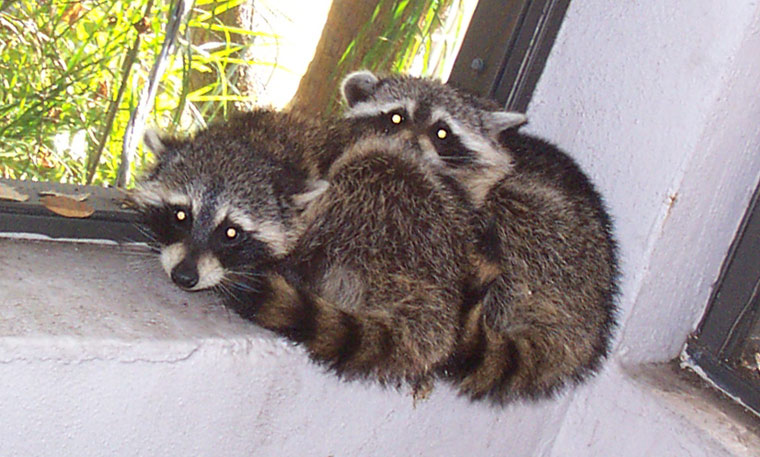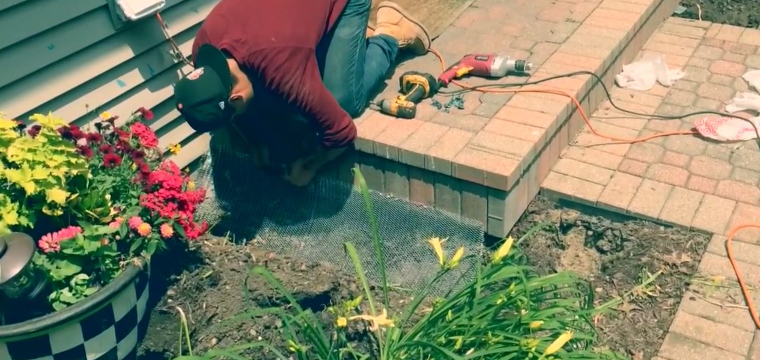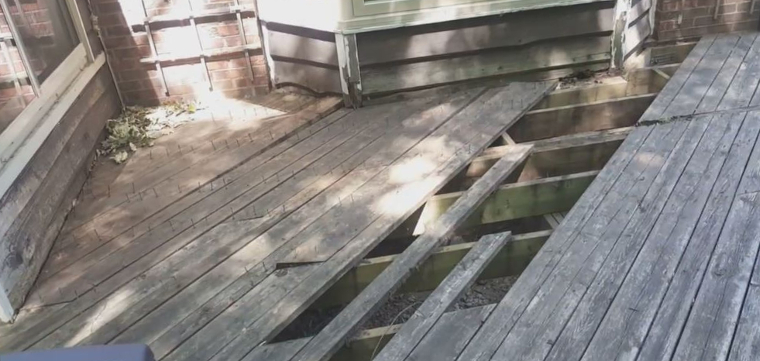-
info@aaanimalcontrol.com
Call us for help in your town
Humane Wildlife Education
Can raccoons open doors or windows?
Need raccoon removal in your hometown? We service over 500 USA locations! Click here to hire us in your town and check prices - updated for year 2020.
Raccoons are really smart animals. They are well known to be much smarter than many of us give them credit for. Don’t they always outsmart us too? Getting into our attics and setting up home without us knowing, or regularly tearing through garbage cans even through you were sure you put the lid on tight.

During the early part of the twentieth century, raccoons were regularly used in experiments and studies, and they often did rather well, exceeding scientists expectations. So much so, in fact, that they often managed to break free from their enclosures. In the end, we had to admit that the raccoons were too smart for us!
Early scientific studies, although not really scientific at all, have shown that raccoons could even be smarter than dogs. During memory performance studies, these masked critters remembered things for longer periods of time than other animals, even dogs, and dogs are meant to be one of the best animals for remembering stuff!
Along with being super smart, most raccoons are adorably mischievous. As well as breaking free from their enclosures, they’re well known for breaking INTO places they shouldn’t, and even finding sources of food that you would think impossible. This is what makes them rather poor pets. Taming them is the easy bit, but keeping them tame and not behaving like a naughty toddler can be quite the challenge. Despite this, it is legal to have a pet raccoon in over twenty states.
Raccoons have thrived on this planet, despite falling prey to danger every day, and they have learned to coexist quite nicely alongside humans, living in the spaces they rarely visit and eating the foods that they deem not good enough to eat themselves. They have learned how to knock garbage cans over to disrupt latches and get to the leftover human food inside. In fact, residents in Toronto were faced to look for a new garbage can design that would actually keep the masked rogues out.
Doors and windows are also proving to be no tricky business for raccoons, and those that live in more human environments - in the city, for example, are generally known to be smarter than their rural cousins. City raccoons have learned to open doors, windows, and much more besides. One raccoon in Canada was spotted using a plant pot to stand on, to reach a door knob, which it then fiddled with for about five to ten minutes before getting it open and sneaking inside. Rural raccoons have not yet mastered the art of grasping and turning items, it would seem, whereas these city-living raccoons do.
Not only are raccoons in the city much smarter than their rural cousins, they’re also more stubborn and determined. If a raccoon living “in the wild” were to find a food source that it couldn’t get to, it would soon give up and move on. A city dwelling raccoon, on the other hand, will work around a problem systematically, for hours on end in some occasions, until they finally get to whatever it is they want.
When it comes to protecting yourself against will animals, you’ll need to step up your game. These creatures are smart enough to learn how to open garbage cans, doors and windows, and that means that you will need to add an extra layer of protection if you live in an area rife with wildlife.
Raccoons Under Porch or Shed: How to Keep Them Out
Need raccoon removal in your hometown? We service over 500 USA locations! Click here to hire us in your town and check prices- updated for year 2020.
You have two options when you find wild animals, specifically raccoons, under your porch, decking, or shed: You can either clean that area out entirely, making it open, airy, and light/bright, or you can seal off the area entirely, making it sealed, closed-off, and impenetrable for passing pest animals.

Sealing the area off is the better option of the two, but clearing out the space will also have a positive effect on any wildlife populations that live there. Well, positive for you; not overly positive for the animal.
Animals do not like wide, open, and bright spaces, especially wild/pest animals. They like dark, closed-off, sheltered and safe spaces, not easily reached by passing predators, including humans. That's why you will find these creatures in spaces that are often hard to reach — attics, under the shed, hiding under the porch, etc.
Sadly, opening up and emptying out these spaces is not usually an easy job, especially if you have a large space to clear out. If clearing-out isn't a good option for you, the other option is to seal off, but, of course, you MUST ensure that all pests living underneath there are evicted first. Otherwise, you'll just lock them in, which doesn't resolve the problem.
There are a number of products that you could rely on to help move the animal out of the space quickly, but we would recommend using a wildlife rehabilitator to trap the animal(s), or raccoon wildlife eviction fluid. The latter works pretty well for female raccoons with kits in a nest, forcing them out by making them believe a male, predatory raccoon is hanging around.
Once all animals have been safely evicted from the space beneath your shed or porch, you can then seal it up. For this job, you will need strong, hardwearing, and durable materials that are not easily torn through by the sharp claws of a raccoon. Where there is one pest animal, there will be more, so you must also bear in mind the possibility of rodents being able to get into your home. Hard and strong metals are the best materials to turn to, to prevent future invasions — hardware cloth, for example, can be moved and bended into shape to help protect awkward spots, and metal flashing, combined with other items, can form quite the physical barrier.
Can You Stop Raccoons Getting Under the Porch?
Need raccoon removal in your hometown? We service over 500 USA locations! Click here to hire us in your town and check prices- updated for year 2020.
You can stop raccoons from getting wherever they want to get to, as long as you are one step ahead of the animal. For example, if you know that raccoons regularly visit one particular spot in your back garden, you can make an effort to better protect that spot and stop the problem from coming back.

When you're talking about areas such as under the porch, you do have more than one option. You can look at closing and sealing the area up, making sure that no wild critters have easy access to it, or you could look at opening it up entirely —making it light, breezy, and airy. One option gives you the physical barrier between the raccoon and your property, while the other allows for the raccoon to simply pass through, but find that particular space too unattractive and unappealing to stay for long.
Top tip: most wild animals dislike bright, light, airy, open spaces. It is not safe for them — predators on both the ground and in the air have easy access, both during the day and night.
Putting up a physical barrier is going to be a better option as far as raccoons are concerned — a pest animal in almost all states, and one that has the potential to spread leptospirosis, raccoon roundworm, rabies, and a string of other disease that can affect both people and other animals alike.
Physical barriers to protect a porch from raccoons come in a number of ways. Galvanized hardware mesh can offer a lot of protection against stronger wild critters, and we can recommend 1/4 or 1/3 inch mesh. It would be wise to extend that physical barrier to below the ground; not just on top of it. Raccoons are burrowing animals and without that underground protection, the animals can still get to that area underneath your porch with relative ease.
As well as putting up these barriers, you should look at your land in general — all of the attractants that you can see. Raccoons will usually visit a back garden to find food, water, or because there is a decent den spot there. If your garden can no longer offer those things, the animal won't be all that interested. In turn, it'll leave your porch alone.
We recommend putting up a fence/physical barrier as well as removing the debris and food from your garden in order to keep raccoons out and stop them from getting under the porch. Repellents can work to get them out initially (eviction fluid), but won't work long-term — you will need an actual barrier of some sort if you wish to have any luck. Raccoons will go back to old den sites all the time they are still open, sometimes returning to the same ones for many years over.
All the while you are putting up barriers to stop raccoons having access to specific parts of your garden or yard, it makes sense to remove any attractants at the same time. This could be piles of debris and rock piles, which act as the perfect start to a den site. It could even be bird feeders, vegetable patches, or even cat/dog food in bowls on the ground — nothing is a bigger attractant to a raccoon than a good n' hearty meal.
For more information, you may want to click on one of these guides that I wrote:
How much does raccoon removal cost? - get the lowdown on prices.
How to get rid of raccoons - my main raccoon removal info guide.
Example raccoon trapping photographs - get do-it-yourself ideas.
Raccoon job blog - learn from great examples of raccoon jobs I've done.
raccoons in the attic
Can Repellents Get Raccoons Out of The Chimney?
Do raccoons use tools?


















